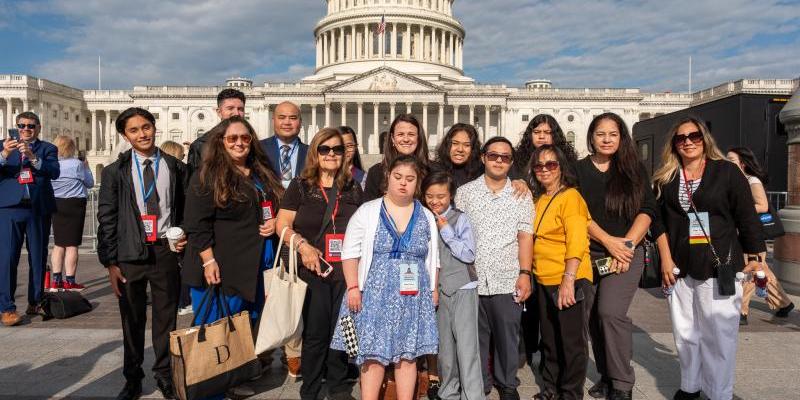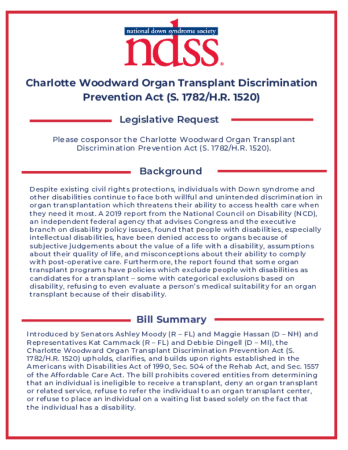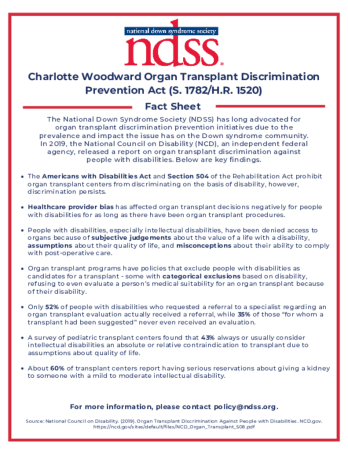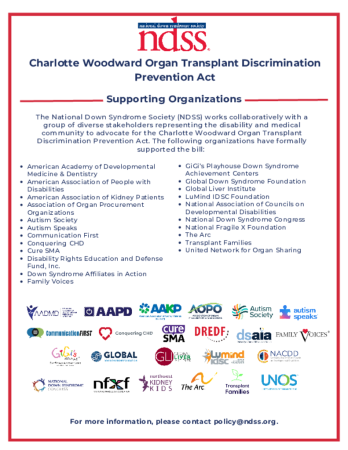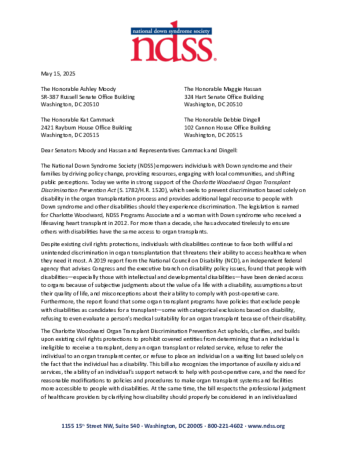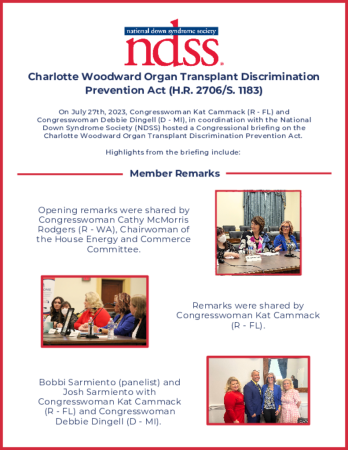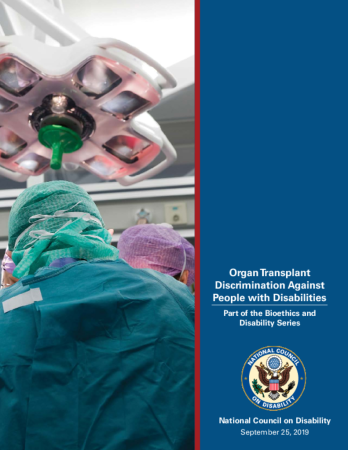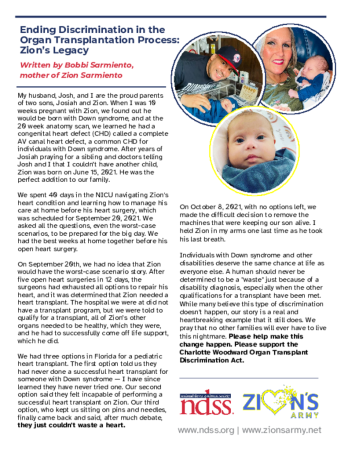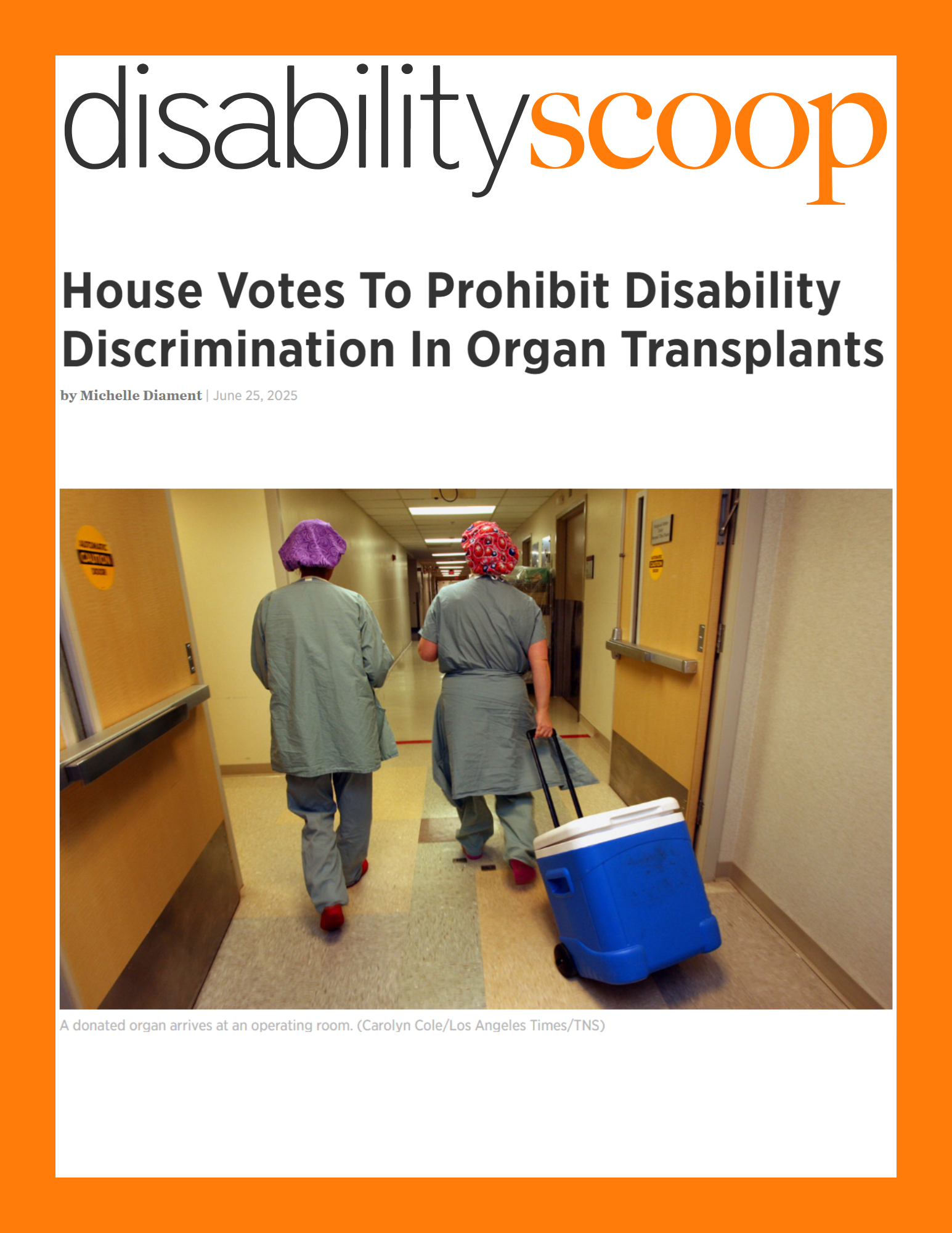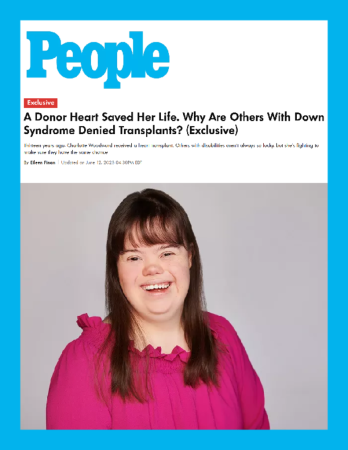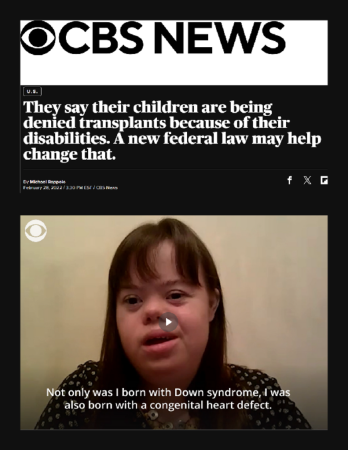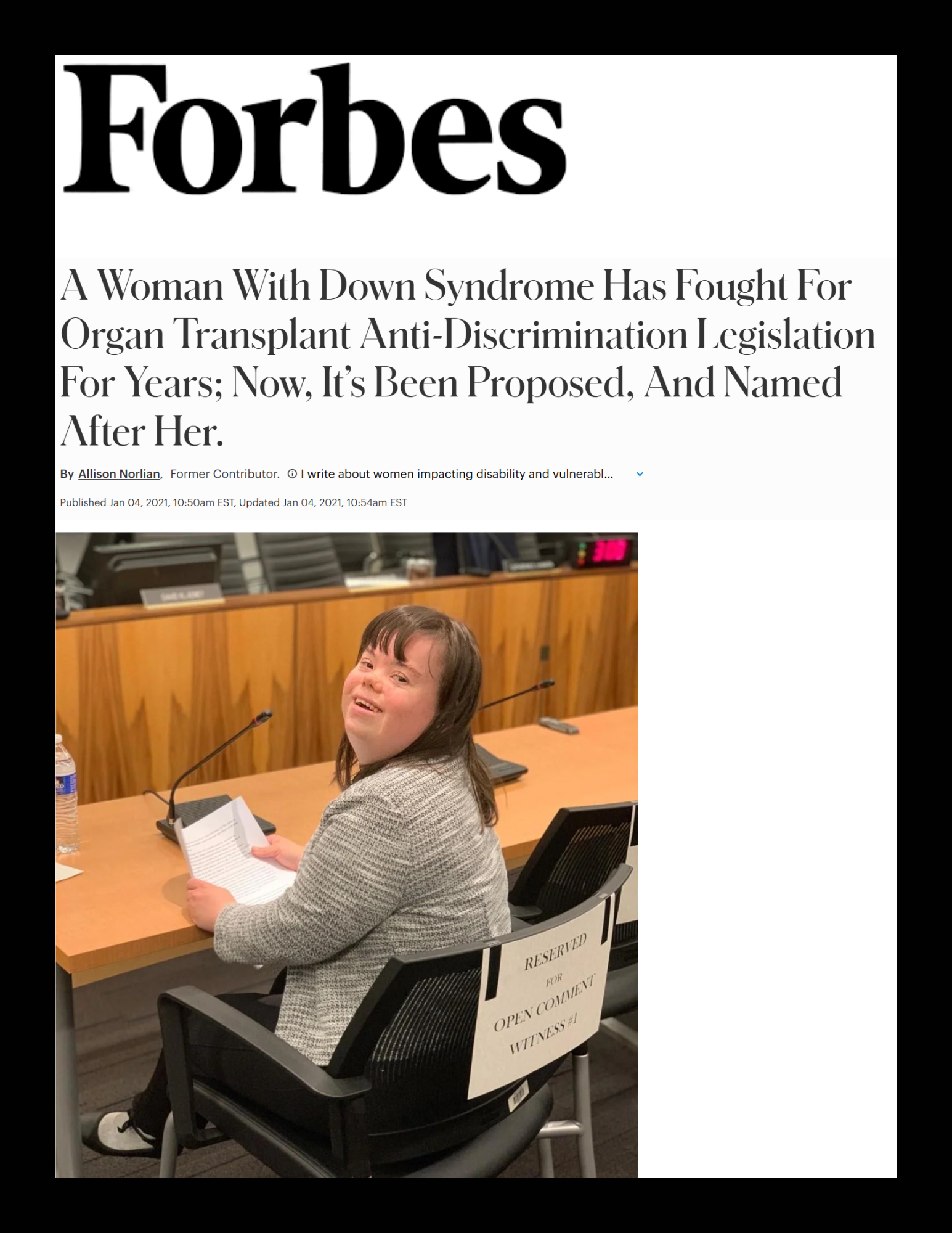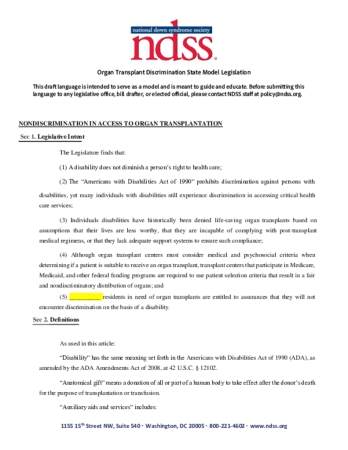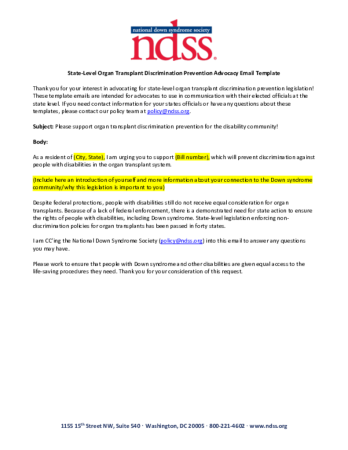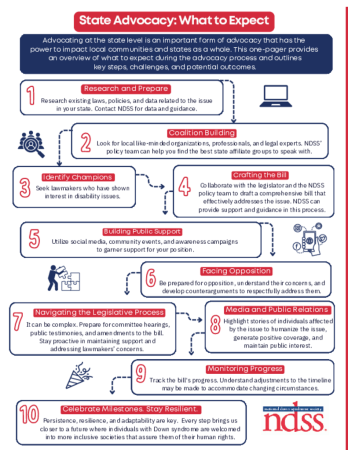Overview
Individuals with Down syndrome and other disabilities have historically faced discrimination in the organ transplant system as a result of both willful and unintended discrimination. The National Down Syndrome Society (NDSS) believes that all individuals with Down syndrome deserve to access a healthcare system free from discrimination that assures them of their human rights and welcomes them into a more inclusive society. In line with this vision, NDSS champions organ transplant discrimination prevention legislation at both the state and federal level. The toolkit below is intended to support community advocates who wish to get involved with organ transplant discrimination prevention advocacy efforts.
For more information, please contact our team at policy@ndss.org. To learn more about NDSS grassroots advocacy initiatives, please visit our DS-Ambassador® page here.
Federal Overview
Charlotte Woodward Organ Transplant Discrimination Prevention Act (S.1782/H.R. 1520)
At the federal level, NDSS champions the Charlotte Woodward Organ Transplant Discrimination Prevention Act (S.1782/H.R. 1520) also known as "Charlotte's Bill." The bill is named after Charlotte Woodward, an advocate with Down syndrome and member of the NDSS staff who received a life-saving heart transplant a decade ago. Since then, she has advocated tirelessly to ensure others with Down syndrome and other disabilities have the same access to life-saving care that she did. NDSS supports this legislation because it would prevent discrimination based solely on disability in the organ transplantation process and provides additional legal recourse to people with Down syndrome and other disabilities should they experience discrimination.
Charlotte’s bill was passed in the House during the 118th Congress, but unfortunately didn’t pass the Senate. This bill was re-introduced in the 119th Congress by Senators Moody and Hassan and Representatives Cammack and Dingell.
Please contact your Members of Congress by using our action alert!
State Overview
Organ transplant discrimination laws are essential at the state level because they create a uniform and consistent framework for ensuring fairness and equal treatment in organ transplantation within the state's healthcare system. While federal laws like the Americans with Disabilities Act (ADA) provide important protections, state-level laws can address specific regional concerns and tailor solutions to meet the unique needs of their communities.
Additionally, state-level laws enable more immediate and accessible avenues for advocacy and enforcement. By focusing on state legislatures, advocates can work closely with local policymakers, community groups, and medical professionals to raise awareness and drive change effectively. This proximity to decision-makers allows for quicker responses to emerging issues and the ability to tailor laws to address local challenges.
For more information on the state initiatives, please contact policy@ndss.org.
Advocates can use the resources below to advocate for organ transplant discrimination prevention at the state level.
States (or districts) that have not passed legislation:
- Alaska
- Connecticut
- Washington, DC
- Hawaii
- Idaho
- Maine
- Nebraska
- New Hampshire
- New York
- Utah
- Vermont
Check out our Advocacy Alerts to stay up to date on the latest state-level organ transplant discrimination prevention bills!





